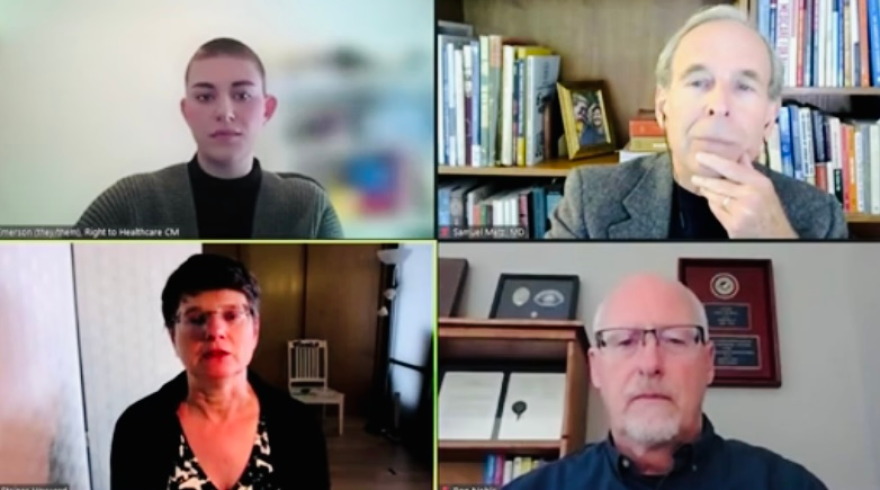Oregon voters will soon be asked to decide if health care should be a constitutional right. The Right to Healthcare amendment would be the first of its kind in the nation.
Passage of Measure 111 would amend the state constitution to ensure that every resident has access to “cost-effective, clinically appropriate and affordable health care.”

Sen. Elizabeth Steiner Hayward, D-Portland, is a family doctor and was a chief sponsor of the measure that was referred by the Oregon legislature. She calls the proposed amendment a “guiding principle.”
“It doesn’t create a tax," she said. "What it does is, it says ‘here is a value that Oregonians share and hold deeply enough that they want it in their constitution.’”
Private physician Sam Metz passionately supports a single payer health care system and opposes Measure 111. He says one reason is legal liability. “According to legislative legal counsel, any Oregonian who does not receive cost-effective or affordable health care has standing to sue the state.”
If Measure 111 passes in November, it would be the first amendment adopted by any U.S. state to secure the right to affordable healthcare for every resident.
The text of Ballot Measure 111 is brief, a scant 84 words. Some proponents say brevity in the amendment is proper because specifics don’t belong in constitutions.
As the measure reads, the state's obligation to ensure affordable health care would have to be balanced against existing obligations including “funding public schools and other essential public services.”
And it reads that “legal remedies for lawsuits may not interfere with the balance between a right to healthcare and funding other essential public services.”

Despite concerns that the amendment could set up residents to sue if obligations aren’t fulfilled, attorney Lorey Freeman, with the office of Legislative Counsel, remarked that the provision about balancing obligations would likely protect the state.
In support of Measure 111, The League of Women Voters of Oregon has called it “aspirational” while an opposing lawmaker has argued it is “lazy policymaking.”
Ballot Measure 111 has been a long time coming. There were at least seven attempts to get the measure on the ballot before both the House and Senate approved Senate Joint Resolution 12 in the 2021 legislative session.
The Hope Amendment, as it’s been called, was championed by Rep. Mitch Greenlick. The Portland Democrat died in May 2020 before seeing his proposal approved by both chambers and referred to the ballot as a constitutional amendment.
Emerson Hamlin was a staffer for Greenlick and now manages the Right to Healthcare campaign, advocating for a yes vote on Measure 111.
“My support for this is personal,” Hamlin said during a City Club of Eugene public forum last Friday. “As a consumer of mental health services by the time I was 20, I both received care that had saved my life and been denied access to care that my doctors and I felt I needed, which was an incredibly painful, challenging experience that I don’t want anyone else to go through.”
Hamlin stressed that this measure is a stepping stone and the legislature needs to take action to solve known problems with health care access.
If voters pass Measure 111, it would be up to lawmakers to determine how to fulfill the state’s obligation. The measure does not contain any built-in funding.
Rep. Ron Noble, R-Carlton, opposes the amendment’s passage because the measure has too many “unknown impacts,” such as the agreeing on definitions of the terms “cost-effective, clinically appropriate and affordable.” He said the words may mean different things to different people.
“Don’t get me wrong,” Noble said, “I’m very much for coming up with affordable, quality and accessible health care. But again, with these undefined areas, we open ourselves up to creating a bureaucracy that comes up to a policy decision for individual rights.”
Noble added that Americans are still arguing what the constitutionality of the 2nd Amendment is in the United States Constitution. Specifics in constitutional language matters, he said.

The pros and cons of Measure 111 were discussed by Sen. Elizabeth Steiner Hayward, Rep. Ron Noble, Emerson Hamlin and Sam Metz during a City Club of Eugene forum Friday, October 14, 2022.



